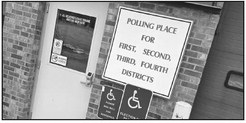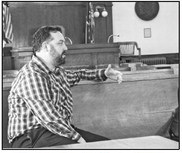Mistrust of science within American Christianity
Community voices
The odd thing is that this deep mistrust of science (and experts generally) within American Christianity seems a fairly new phenomenon. All this conspiracytheorizing and bald mistrust of physician researchers would have been laughable to Christians in the 1980s (including Young Earthers, for that matter, who reserved their skepticism for evolution, geology and astronomy). And even then, evangelicals were not known for deep thought (see Noll’s “The Scandal of the Evangelical Mind” for details). My hunch is that this is evidence not of poor science education (or at least not exclusively) but also of poor Christian discipleship and poor knowledge of history. God has worked through both science and government to mitigate both natural evils (like viruses) and the evil that people do to one another. Yes, people still screw up, and not everyone has noble motives. But this assumption that the worst sort of evil inheres in everyone except me and people just like me seems new, and frankly deeply un-Christian.
Christianity once considered an illegal cult by the Romans, splintered and only to be combined later by the Roman Emperor Constantine (son of St. Helena). Yes, what was once a religion of the poor and slaves in the middle east had to also be accepted by the wealthy and people as far away as Britain. While the silent majority of Christians still adhere more to the actual teachings of Jesus, a loud minority seem to be more interested in the era of the Dark Ages and Inquisition, when Christianity was hijacked by power hungry politicians. Anti-intellectualism, hatred and inability to accept others and an obsession with greed and wealth aren’t the bullet points Jesus used in any of his sermons.
Do you know the story of the woman who was trapped in her home during a flood? A neighbor came by and offered help. She said, I will wait for God to save me. Then the police came and she again said she will wait for God to save her. As the waters rose higher, the fire department, and finally a military helicopter came and she refused each time. Of course she died and went to heaven. At the pearly gates she complained, why didn’t God come and save me, and God said, didn’t you see the neighbor, the cop, the fire department and the military helicopter?
Dr. Anthony Fauci, the director of the National Institute ofAllergy and Infectious Diseases (NIAID) said in June, that the “general anti-science, anti-authority, anti-vaccine feeling” has hampered the United States’ ability to control the outbreak of the COVID-19 pandemic. Scientists in the U.S. are at the mercy of public views about U.S. institutions when they do not actively engage in the policy sphere.
The question then arises, why do political and religious ideologies win when they come into conflict with science? A 2012 study on conspiracy theories offers an explanation. They found that conspiracy theorists can hold their beliefs in the face of contradictory facts because of a process called global coherence, by which subjects selectively chose to believe only those facts which supported their worldview.
In the same way, political ideology and religion may shape how willing people are to accept scientific facts. That’s why believing that governmental authorities are untrustworthy could allow one to ignore all evidence of a vaccine’s efficacy. Rep. Michele Bachmann of Minnesota warned in 2011 during presidential primary debate that “innocent little 12-year-old girls were being forced to have a government injection” to prevent infection with human papillomavirus (HPV) and later said the vaccine caused “mental retardation.” The truth is the HPV vaccine prevents the main cause of cervical cancer. This is truth that can be peer reviewed and replicated. Politicians are only interested in advantage and winning in the moment for power. So, judging them by a scientific standard is fruitless. Depoliticizing scientifi c theories is one of the kind of actions needed to put Americans’ confidence in science back on top.
In the latest editorial for magazine of the American Association for the Advancement of Science, the most highly respected organization promoting integrity and ethics in scientific research since 1848, the editor, Herbert H. Thorp, penned that the U.S. would have dealt with coronavirus had it listened to the science community. As they say, people have an epistemic need to know the truth and they also have an existential need to feel safe.
— Dr. Osmond Ekwueme, Medford




